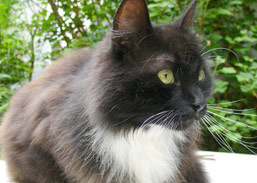Drugs are modern medicine’s answer to nearly any ailment that your cat may face, but powerful medications need to be used with caution and under the guidance of a veterinarian. Loving pet parents hate to see their cats suffer so when they are in pain or not feeling well, it is natural to want to treat them with medications that work for us. It is important to remember that cats metabolize many medications differently than we do so many of the household medications that we keep in stock for ourselves are not safe for Kitty. The same can be said for drugs that your vet prescribed for your dog because there are some drugs that are safe for dogs and not cats. Some over the counter medicines that are made for people are actually safe for pets (like Benadryl and Pepcid), but even in those cases you should always get direction from your vet.
Drugs that are Toxic to Cats
- Acetaminophen (Tylenol)
- Aspirin
- Ibuprofen (Advil, Motrin)
- Naproxen (Aleve, Anaprox)
- Antidepressants
- ADD/ADHD Medication
- Sleep Aids (Benzodiazepines, Xanax, Ambien)
- Beta-Blockers
- Thyroid Hormones
- Cholesterol Medications (Lipitor)
Symptoms of drug toxicity in cats include GI upset (diarrhea, vomiting), fever, dehydration, lethargy, pale or dark gums, seizures, rapid heartbeat or signs of pain.
Pet parents should always be careful to keep medications out of pets’ reach to avoid accidental ingestion, but sometimes our curious cats get into the cupboards and consume items that they are not supposed to eat. If you suspect your cat consumed a drug that is toxic to them, you should call your veterinarian immediately. Your vet will know how to respond. In some cases there are antidotes or sometimes you may need to induce vomiting.
If you veterinarian is not available, call poison control-
Pet Poison Control: 888-426-4435
Pet Poison Helpline: 855-764-7661
There may be a $65 fee for using this service, but it could save your cat’s life.
Studies
The diagnosis of acetaminophen toxicosis in a cat.
Intravenous lipid emulsion for treating permethrin toxicosis in a cat.


